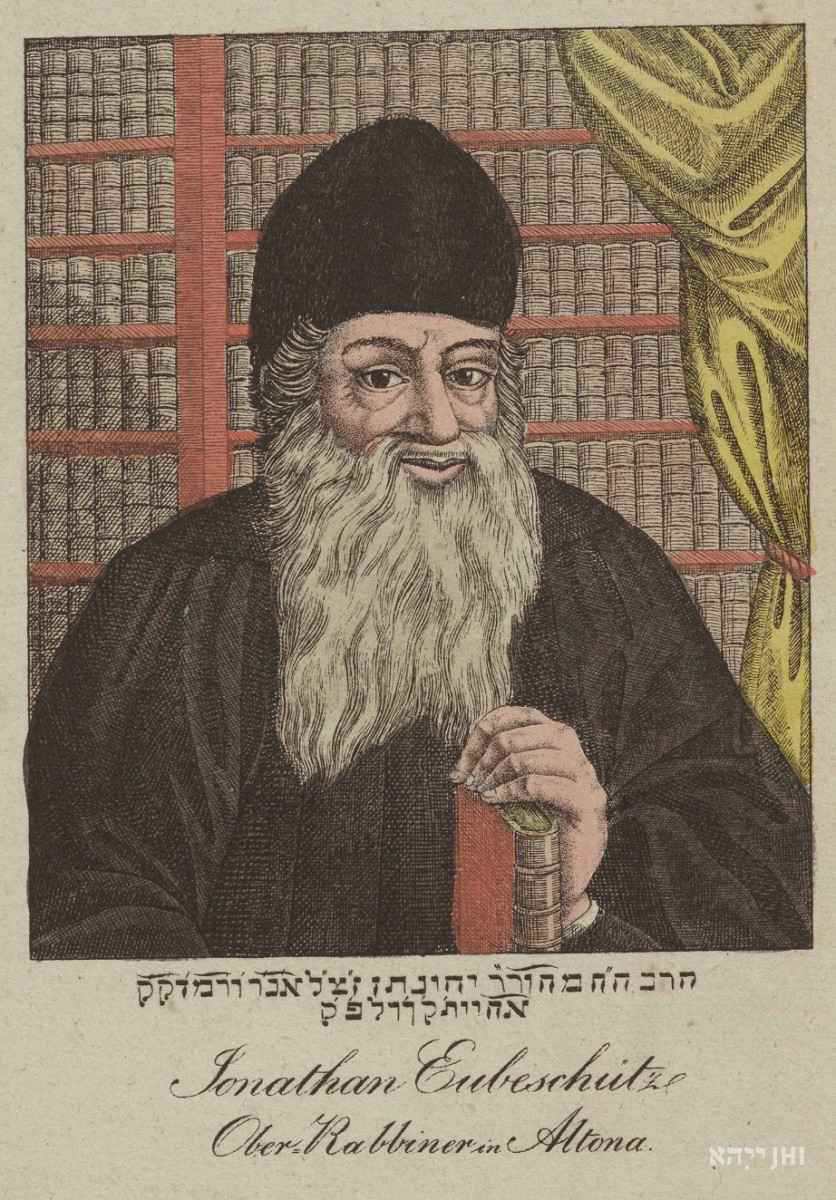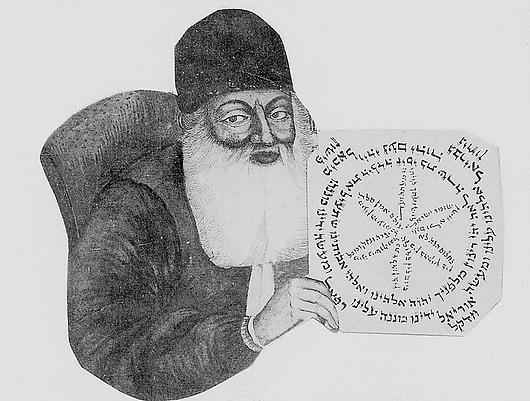

| [homepage] — [blogposts] — [contact-info] |
24/12/24: Rab J. Eibeschütz – a Crypto-Christian? 

Rab J. Eubeschütz was born in Ivančic, Moravia. His name, Eubeschütz, is a derivative of this birthplace of his. His father, R. Nathan, was a grandson of the Meggaleh Ammukot, Rab Nathan Naaté Spiro of Krakow. The Spiro family was a rabbinic aristocracy—and upheld crypto-Christian traditions from the medieval Jewish Pietists of old Ashkenaz, and the messianic patriarch Rashi (Rab Shlomo Jitzchaki). The crypto-Christian resonances of the Meggaleh Ammukot are a subject too elaborate and complex for me to write about here; but I’ll just note, that I strongly object to the academic attribution of an “anti-Christian” nature to his writings. This attribution proves that most academics lack the proper rabbinic initiation, and esoteric sensitivities, to fully, and truly, understand the great Rab Spiro. The crypto-Christianity of Rab Eubeschütz—the Januka, prodigy, of the Spiro bloodline—is undisputable. Not only was he friendly with middle-european Lutheran figures such as Benedict Michaelis (see link) and Emmanuel Swedenborg, but, as I will now show, he incorporated concepts of their theology into his sermons, and even—in a most elaborate, and advanced, form—into his concealed treatise, Wa-wo Ha-Jom el Ha-Ajin. The Christian “theme” that pervades and encompasses the entirety of Eubeschütz’s work is that of Sola Gratia—the redemption by an infinite Grace, unconditioned by the works of flesh. In his sermons of Jaarott Dwasch, he writes: ‘All the scientists say that the Rain is derived from the earth’s moisture [=Israel’s good works], which evaporates and condenses into clouds, from which the sweet parts are rejected downwards by the Sun’s warmth. And if the earth is dry [=wickedness], and the moisture does not ascend [=bad works], there won’t be any Rain. But the Dew is not from the earth’s moisture, but rather from the higher atmosphere, and it always descends in each and every day [=by Grace alone], every season, and the Dew is never regulated.’ Rab Eubeschütz compares Nature and Grace to Rain and Dew—the rain is created from the vapor that ascends from the earth unto the firmament; all the while, dew descends in a manner unconditioned by the substances of the earth. By those principles: the abundance influenced from “Nature”, by the 7 Planets, is conditioned by the actions and workings of men; while the abundance bestowed from God comes with no regard to human actions. It is evident that the idea of Sola Gratia is directly opposed to traditional rabbinic teachings concerning good works, and soteriology. My main claim now, is that this same theme—of Sola Gratia—is also the core idea of the infamous Wa-wo Ha-Jom el Ha-Ajin, in which Nature and Grace are now personified into the “god [with small g] of Israel”, and the “other god”, that is Esau, the אף חובב עמים (Deut. 33:3), meaning “The Face who Loves all Nations”, who bestows plenitude without the constrictions and bounds of Mosaic Law. In Wa-wo you find the truly Christian nature of Eubeschütz’s Sola Gratia, as he now attributes the infinite, unconditioned Grace of God to Esau (עשיו), that is, Jesus (ישוע). Concerning the mystery of Rain and Dew, Wa-wo states (in an “Alchemical” fashion): ‘And know ye, the Rain is in the mystery of Sperm-Menstruum wedding, which is what is said: “for every drop that descends from above, two drops rise from the abysms” [Taanitt 25b]. [...] But the Spirit that is expired from the [trinitarian] Faciality is not met with Menstruum [=good works], and is in the mystery of Dew [=excess sperm], which is indeed very clean because it is in Total Grace.’ Grace, understood as a seminal plenitude (with good Works understood as the uterine seminal fluid [menstruum], by which the Grace-seed is concocted), is naturally in need of “concoction” and a “judgmental” restriction, by which its fluid receives its form. Without this restriction (conducted by the mediative “god of Israel”), the world loses its form, in the same manner that a wasted seed is corrupted, without being conceived. This may explain why Rab Eubeschütz, while recognizing the goodness and righteousness of Jesus, yet remained within the confines of Moses’ Law and Judaism. So does Wa-wo stress: ‘While the Primal One [=Esau] is perfect in the sense that he is infinitely loving, nevertheless he is imperfect, in the sense that he cannot form a construction [=creation].’ So, I think I wrote enough for today. Merry Christmas. 
|